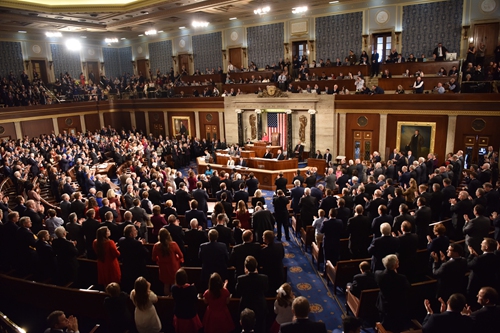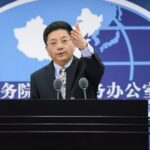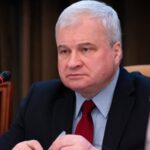US Congress Photos: cnsphoto
But analysts warned the task force may further fray bilateral relations, and if the US continues its aggressive China policy, it will surely meet with China’s array of countermeasures, until it realizes such hawkish measures will lead to a heavy price and cause “real pain” for Washington, Chinese analysts warned.
Following the announcement of the task force, US Congressman Michael T. McCaul announced five pillars of the task force: National Security, Technology, Economics and Energy, Competitiveness, and Ideological Competition.
House Minority Leader Kevin McCarthy announced on May 7 the establishment of a Republican-led task force aimed at conducting probes and making recommendations to combat threats from China.
“They will be looking at a wide range of China-related issues, including influence operations targeting the US like our universities, think tanks and media outlets, economic threats to our government and our allies, efforts to gain a technological advantage, and our role in the origin and spread of COVID-19,” the California Republican said.
The five pillars already covered major confrontation areas between China and the US, which means their next move is to further strengthen and expand hostile policies toward China, said Zhang Tengjun, assistant research fellow at the China Institute of International Studies.
He added that the task force is likely to propose policies that challenge China’s military security, impose sanctions on Chinese officials and seek to undermine China’s globe impact, as the US feels increasingly sidelined internationally since the COVID-19 pandemic outbreak.
The task force also satisfies Trump’s need to blacken China at this moment as the blame game has become a new normal in the White House. And the task force pushes forward the Trump administration’s tough stance toward China, Li Haidong, a professor at the Institute of International Relations of the China Foreign Affairs University, told the Global Times on Wednesday.
Analysts noted people involved in the task force were trying to secure their political position in an extreme way, and at the time when “blame China” has become “politically correct” in the US political sphere.
In sharp contrast to McCaul’s hawkish attitude toward China, his wife owns up to $100,000 in stock of a Chinese company he calls a threat to national security, US news outlet Politico reported.
As the US faces a sluggish economy and missteps in handling the pandemic, Trump and the GOP are facing a challenging election season, said Lü Xiang, a research fellow on US studies at the Chinese Academy of Social Sciences in Beijing.
He said the task force was established in response to the situation, and hyping the “China threat” is to conceal the Trump administration’s chaotic management of virus prevention.
Experts said that while the task force has gained wide publicity, initiated by dozens of Republicans, it’s no more than a caucus, and has no legitimate power. “Although lacking real power, it serves to amplify the ‘China threat’ theory. By hyping this theory, tense China-US relations will be further frayed, so its role cannot be overlooked,” Lü said.
To prevent those people from wielding influence on policymaking, China should put pressure on the Trump administration to prevent those people or organizations from permeating, Zhang said.
Li warned if this task force’s anti-China proposals become reality, the US should be prepared to pay a heavy price from China’s countermeasures. “Once China decides to defend itself, the US will feel real pain,” Li said.




